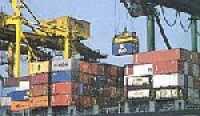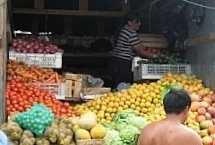The agreement includes an array of benefits that will enable a significant expansion of food products exported to the EU without restrictions
Israeli Ambassador to the European Union, Ran Kuriel, signed last week a new agricultural agreement with his Swedish counterpart and President of the Union, Christian Danielsson.
The agreement which will come into force on January 1, allows for improved access to markets for exporters in both Israel and Europe. According to the new agreement, which was ratified in Brussels, 95% of exported products will be duty and tariff free.
Approximately one billion USD of Israeli agricultural and processed food products are exported to the EU each year.
Industry, Trade and Labor Minister Binyamin Ben-Eliezer said the new trade agreement would boost exports and create more employment in the periphery.
The agreement includes an array of benefits that will enable a significant expansion of food products exported to the EU without restrictions. Food products that until now were subject to entry restrictions to the EU because of quotas or high levies - including chocolates, baked goods, waffles, pasta, marshmallow, fresh salads - will be exempt from taxes and other levies.
Currently more than 25% of Israel's agricultural product and more than 75% of its total fresh agricultural products are exported to Europe. About $1 billion of Israeli agricultural and processed food products are exported to the EU each year, and 44% of all Israeli exports in the food industry are directed to the European markets. Half ofall food imports to Israel come from the EU.
Boaz Hirsch, Industry, Trade and Labor Ministry deputy director-general and director of the Foreign Trade Administration said that "The newagreement promises to enhance the potential of exports of the Israeli food industry," he added that: "Israeli food companies can be expected to increase their sales to the European market, which caters to 500 million customers. At the same time, small andmedium-sized food producers, who until now were not able to export to the EU because of quotas and high levies, will now be able to enter new markets following the improvement of trade conditions”.
The Ministry of Agriculture predicts that the new agreement will serve to expand agricultural exports, an important development given that more than 60% of exports to Europe come from the Arava and Negev regions.
EU, Israel sign new agricultural agreement
The agreement includes an array of benefits that will enable a significant expansion of food products exported to the EU without restrictions
10.11.09 / 00:00
•
More articles that may interest you

Israel Corporation Shareholders Approve ZIM Restructuring Plan

Israel: Avocado exports to increase by 50%

Customs arrested men suspected of smuggling diesel fuel to Israel

Israel & Georgia settled air service dispute

Evergreen & Norasia to strengthen presence in the eastern Mediterranean

Ministry of Industry: The top 100 exporters improve their performance
More news from Industry & Trade Section
>CBS: July - September 2009, import up by 19.5%/02.11.09
>Israel denies U.N. experts' claims that it is trading with ‘Blood Diamonds’/02.11.09
>US administration removed import levy on Israeli milk products/26.10.09
>Israel's leading economic indicators up in September/26.10.09
>Finance Minister Dr. Yuval Steinitz boosts aid to exporters/19.10.09
>Israel Polished Diamond Exports declined to US$2.6 billion/19.10.09
>CBS: Inflation rate fell to 2.8% in September, within Government target/19.10.09
>Customs directorate: 83% of imported goods released via fully Automated Clearing System/13.10.09
>Melnick Index increased by 0.3% in August 2009/13.10.09
>CBS: Export Price Indices in second quarter 2009 up 5.3%/13.10.09
